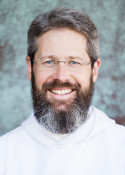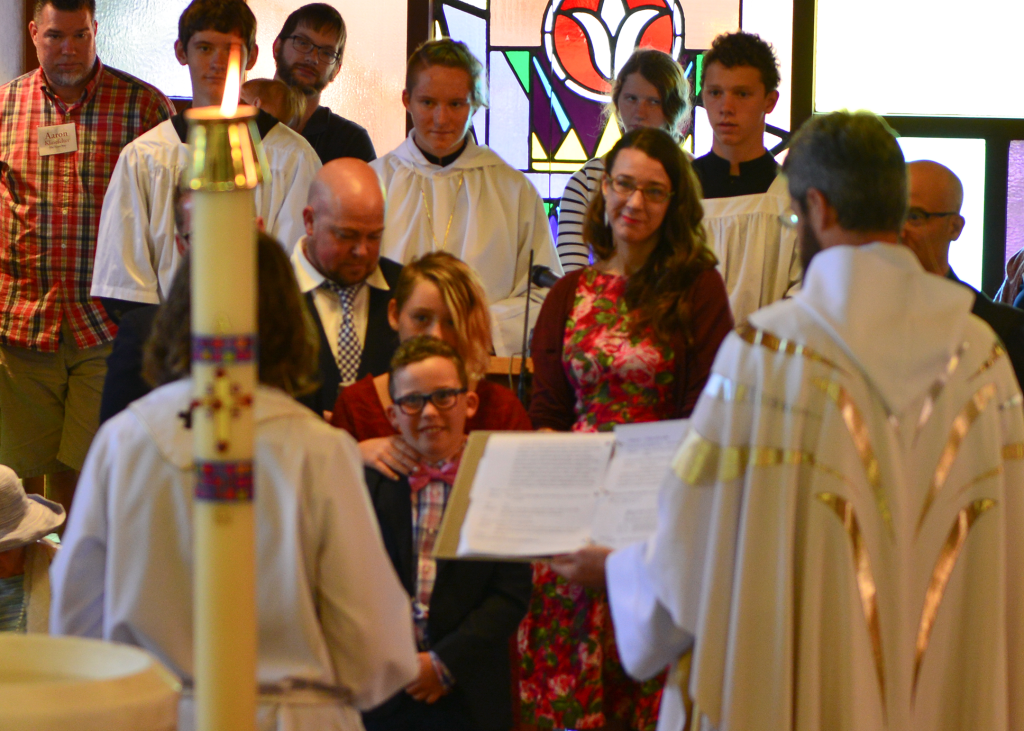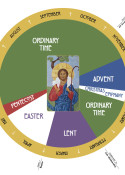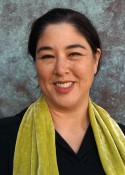FROM THE RECTOR
 Bene Esse
Bene Esse
Many, many years ago, in a land far from here, after seven years of armed rebellion, as the Revolutionary War was coming to an end, Anglicans in what was soon no longer to be the Colonies faced a series of decisions: what relationship will we have with the Church of England? how we will organize ourselves in this new country? what we call ourselves, anyway?
The issues were complex and challenging, and more than this reflection has space for (I feel a class about The Origin Story of the Episcopal Church coming on), but it led to a particularly thorny discussion about bishops. As in, whether or not they should be part of this new church, and if so, how.
The crux of the debate was most famously articulated by William White in 1782, in his essay, The Case of the Episcopal Churches in the United States Considered. What was being considered was whether bishops were esse, or essential to the existence of a Christian church, or bene esse, for the benefit of a Christian Church. Eventually, the decision of the nascent Episcopal came to be that bishops were bene esse, as in you can have a valid Christian Church without having bishops, but that they are beneficial to the ordering and functioning of a Christian community.
For which I believe we can be thankful. And not just because our bishop, the Rt. Rev. Marc Handley Andrus, will be visiting us next Sunday, January 14th. But also because I do believe that it can be a good thing to be ordered in this way, by having bishops as leaders and symbols in a Christian community.
Yes, the role is scriptural (though the citations are slim), but over the centuries, one of the sources of the authority of this office has been the ways that it can serve to connect one part of the Body to another. For us at All Souls, this means not just of other Episcopalians in the greater Bay Area, or Anglicans worldwide, but through our participation in the Apostolic Succession (yet another reflection or class), a connection with all kinds of Christians in our area and around the globe.
It has been said that, “When you touch one bishop, you touch them all.” Thanks to William Countryman, in his excellent book, Living on the Borders of the Holy, and the reflections of Bishop Marc, I have come to understand that as priests can serve as icons of blessing, and deacons serve as icons of service, that bishops can serve as icons of unity.
In an increasingly fractured world, where there seems to be a greater willingness to walk away from each other—internationally, nationally, and locally—being reminded of this witness in a necessary reminder and corrective. When Bishop Marc visits with us at all three services on the 14th (7:30a, 9a, and 11:15a), as he preaches, presides, and receives and confirms, he will be bringing with him the concerns, hopes, and prayers of our sisters and brothers of the wider family.
So come one, come all. Invite a friend, bring someone who’s never met a bishop, join in the celebration with Bishop Marc in our common life in this remarkable body.
Peace,
Phil+
All Souls in the News
 This week, Bay Area news station KTVU published a story about the renaming rite we celebrated with Samson last August. In the article, Bishop Marc explains how we have come to understand our call in honoring our transgender siblings, saying: “people come here to the Bay Area to claim their authentic identities and the church wants to support that within itself and within society.’’ You can read the whole story here.
This week, Bay Area news station KTVU published a story about the renaming rite we celebrated with Samson last August. In the article, Bishop Marc explains how we have come to understand our call in honoring our transgender siblings, saying: “people come here to the Bay Area to claim their authentic identities and the church wants to support that within itself and within society.’’ You can read the whole story here.
From Adult Formation
 New Classes Beginning
New Classes Beginning
Sounding the Liturgical Year, with Jamie Apgar
Meeting at 10:10 am on January 7, 14, 21, and February 4
Living in that entity called “the West,” we have received from European precedents—often unknowingly—peculiar ways of experiencing and thinking about music. These idealizations can tend not just toward the universal but even toward the socially destructive: music is essentially emotional or more broadly communicative, its own “language,” a domain in which great artists create out of inspiration and ennoble listeners, even facilitate spiritual transcendence, through works of genius. Such notions are variously problematic and contingent, particularly in universalized formulations: mostly unexamined until the ascendance of post-colonial critique were the power imbalances by which the model of the inspired genius or easy equivalences between music and language have served to oppress particular groups. Just as importantly, these ideas have served to occlude other perspectives that support different accounts of the political and cultural work that music performs. Until the last few decades, for instance, the social functions of music lay largely at the periphery of scholarly and popular discourse. This course will seek not so much to tear down the core aesthetics of Western artistic cultures as to contemplate them alongside other modes of engaging music, to situate music within the broader category of sound, and to consider both the benefits and the drawbacks of our many spiritual, social, and sensual experiences of music. It will do so with reference to the principal context in which music is used in the Episcopal Church: the liturgy. Through scripture, historical examples, discussions, and perhaps even a little of our own music-making, we will explore not just what music has done but also what we might think we need it to do.
Environmental Justice: Case Studies in the Spirit of Resistance, with Lewis Maldonado and Harry Allen
Meeting at 10:10 am on January 14, 21, and February 4
This three-session class will first look generally at the concept of environmental justice — what it means, its origins, and why it is important — and the relationship between environmental justice and our Christian faith. We will then examine several instances where faith communities have engaged in struggles for environmental justice, e.g., the No Coal in Oakland campaign, the Standing Rock opposition to the Dakota Access pipeline, and the efforts of the Navajo people to address contamination from abandoned uranium mines. Some environmental justice campaigns have been successful and others have not or are still in progress. Regardless of the immediate outcomes, efforts to work towards environmental justice are worthy of our reflection and discussion, as examples of our Baptismal vows to strive for justice and peace among all people and to respect the dignity of every human being.
Summary of December 19, 2017 Vestry Meeting
 On Tuesday, December 19th, the vestry broke from its regular routine of meeting in the Common Room, and instead gathered at the lovely home of our junior warden, Maggie Cooke, for a fabulous potluck dinner, followed by the meeting. Our shared meal was extraordinarily delicious and included many lovingly prepared main dishes, salads, sides, and desserts.
On Tuesday, December 19th, the vestry broke from its regular routine of meeting in the Common Room, and instead gathered at the lovely home of our junior warden, Maggie Cooke, for a fabulous potluck dinner, followed by the meeting. Our shared meal was extraordinarily delicious and included many lovingly prepared main dishes, salads, sides, and desserts.
After our stomachs were full, we eased into the meeting by breaking into three groups to update each other on any emerging issues in our respective ministry areas. In an effort to infuse these discussions with a spiritual element, vestry chaplain Bob Holum had thoughtfully prepared a reflection on Mark 13:24-37 and asked the vestry to consider the advent themes of “waiting and remaining awake” as a lens through which to examine our work supporting these ministries. We pondered these questions: “As we work to carry out our ministries, how do we wait for (discern, be attentive to, remain open to) God’s presence? How do we help each other to feel heard?”
One highlight: Erin Horne, who is a member of the Meals and Rides ministry, shared her observation that recipients of such generosities deeply appreciate being supported by the parish during difficult times. She suggested that parishioners might let the Meals and Rides team know if they notice someone who is in need of help, as not all folks feel comfortable asking for help themselves. Meals and Rides is just one of many ways in which the All Souls community supports its brothers and sisters in need.
Next up was the main event: Marilyn Flood, representing the Finance Committee, led a discussion of and vote on All Souls’ proposed budget for 2018. The vestry had reviewed a draft version of the budget at the November meeting and was now faced with voting to approve the final draft, which reflected up-to-date pledge income and additional adjustments.
Most significantly, the 2018 budget contains a 6% increase in expenses over 2017, the majority of which support the salaries and benefits of All Souls’ clergy and staff. This recommendation did not come lightly: it was the result of months of thoughtful review and analysis by the compensation task force, led by Mark Koops-Elson, which looked at compensation history and market trends, and considered the significant growth in membership and programming that All Souls clergy and staff have been instrumental in making happen over the past several years. (The last time All Souls had convened a compensation task force was five years ago. Going forward, this will be a biennial endeavor.)
After a long and lively discussion on the budget process, salaries, tolerance for risk, financial sustainability, and – most importantly – how faith fits into all of this, the vestry voted unanimously to approve the 2018 budget. The final budget will be presented to the entire parish at the Annual Meeting on January 28, 2018. We thank Marilyn Flood, Vimala Tharisayi, and the Finance team for their faithful and diligent work on creating this important document that guides our parish.
Father Phil then gave his monthly Rector’s Report, which summarized items related to the City of Berkeley, the Diocese of California, and aspects of parish life. Highlights included news of Bishop Marc Andrus’s visit to All Souls on January 14, 2018; our new administrative assistant, Nettie Pinell, who is coming up to speed on her job duties beautifully; our advancing postulants; and the beauty of our Advent and Christmas services.
Next up was Ed Hahn of the Parish House Steering Committee, who has been a welcome regular at our monthly meetings for the past several months. Ed provided an update on the progress being made by our architecture firm, HKIT; City of Berkeley issues; and upcoming decisions. We remain grateful to Ed, Kirk Miller, Caitlin Lempres Brostrom, and other members of the Parish House team for their ongoing attention to moving this project forward, despite some occasional obstacles.
The meeting closed with vestry members offering prayers of thanksgiving, petition, and guidance, and finally a blessing from Father Phil.
Warmest wishes to all for a joyous new year!
– Tara McCulloch, Senior Warden
INTERFAITH IMMIGRATION VIGIL
Join us this Saturday, October 7th at 11:00 am at the West County Detention Facility in Richmond (5555 Giant Highway) for the monthly interfaith immigration vigil. We’ll gather with song, prayer, sacred story, and make our presence known as loudly as we can for our sisters and brothers being detained. Contact Margaret Sparks for carpooling information.
ANNUAL MEETING
Please come on Sunday, January 28th at 10:15 am for our annual meeting: a time to hear about the budget, to listen to stories from this past year and many years past, and elect our new leadership. Please bring food to share! Childcare will be available on the courtyard; Sunday School does not meet this day.
YOUTH EPIPHANY PARTY
All middle and high school students are welcome to the Epiphany Party on Sunday night, January 7th, from 6:00 pm – 8:00 pm in the Parish Hall. We will decorate cookies, talk with a special guest, and celebrate the Christmas season. Dinner is a baked potato bar. Please bring a side dish, drink, or dessert to share.
NEW MINISTRIES IN THE NEW YEAR
There are so many ways to serve and be here at All Souls. If you aren’t yet connected on a team, consider joining one in this new year! Help is needed with the Sacristans, Ushers, Greeters, Counters, on the Adult Formation team, Stewardship team, and on the Hospitality team. See Emily Hansen Curran, emily@allsoulsparish.org, for more information.



